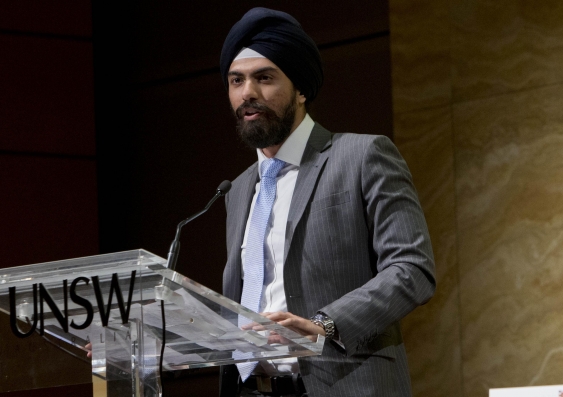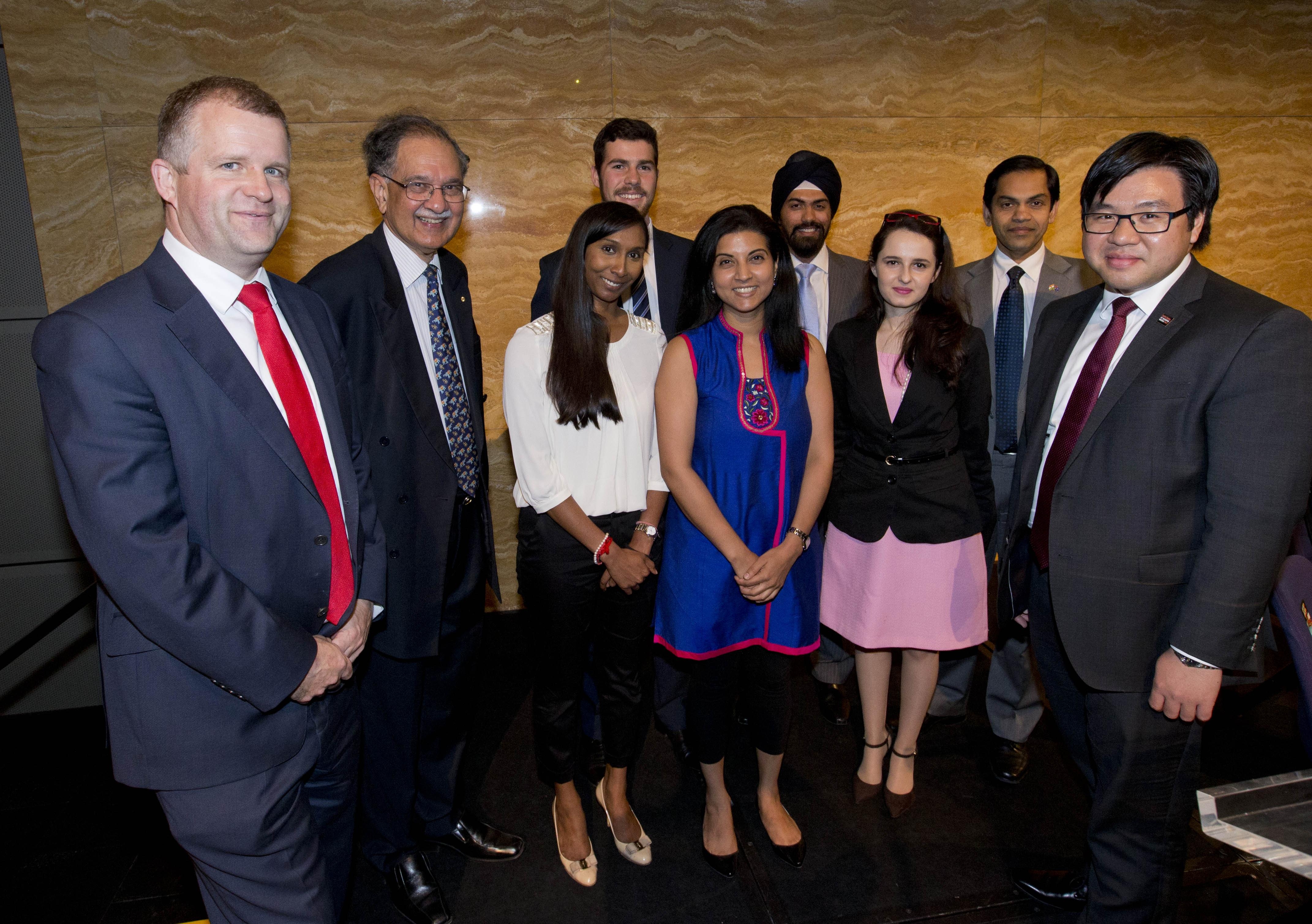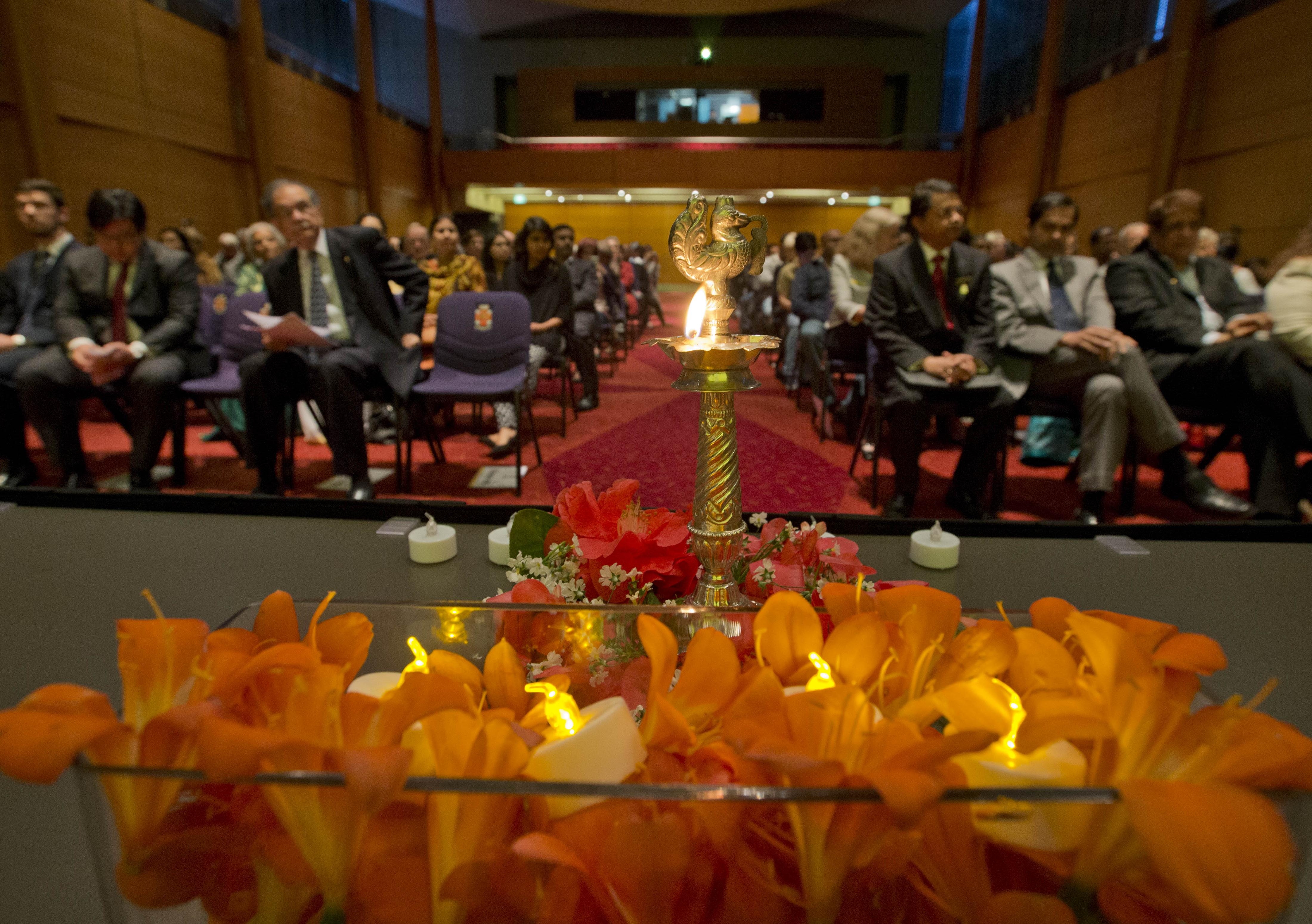OPINION: October marks the 145th birth anniversary of Mahatma Gandhi, the father of modern India and one of the greatest leaders the world has ever known.
As I thought about how to pay tribute to this great man, I reflected on my own connection to Mahatma Gandhi and remembered the tales my grandfather told me of his own father. My great grandfather, who was a contemporary of Gandhiji’s, was an Indian freedom fighter, and while I regaled in the stories of his bravery and valour, the ones I remember most vividly were those of his character.
He was always described as an extremely fair, morally just, patient and peace loving leader of people.
Replace my great grandfather with Gandhiji in that description and you have the same man. I can’t help but think how much of the behaviour of the leaders of Gandhiji’s generation was influenced by the example he set. And that’s really important – one of his greatest influences was on the behaviours of the leaders around him. His pursuit of freedom was not an individual exercise; indeed for him to be successful, he required not only the support of the general public but, due to the size of the endeavour, the motivation of a cohort of leaders around him. I believe that it was this ability to influence a cohort of leaders that is central to what we can learn from him today.
Additionally, I think there are a couple of key leadership lessons we can learn from Gandhiji.
The first, and what stands out above all for me, was Gandhiji’s authenticity as a leader, which spanned every aspect of his leadership – from his clothing, to his daily rituals, to where he lived and what he consumed. As the personification of his ideals he was able to motivate people purely by his existence.
What’s particularly relevant for us today is the way he spoke – in a manner that engaged and motivated a generation of Indians to support his cause, all because of his incredible eloquence and the effort he put into personalising his communications.
Fast forward to today’s world and you only have to turn on an analyst briefing with a CEO or a political news conference to hear a collection of nebulous text book statements or series of diplomatic palm offs. In an age where the goals of organisations are not necessarily as black and white as they might have been in Gandhiji’s time, it becomes an absolute imperative to be able to communicate authentically, a trait unfortunately, that seems a little bit lost to some of our leaders today.
The second of his admirable traits worth mentioning was his long term commitment to the cause he supported.
One of the hardest things for leaders of movements that require a large volunteer base is sustaining people’s attention over an extended period of time. Gandhiji did this over decades in pursuit of India’s independence using his effective communications means and extremely well timed public relations exercises, for example the Salt march and the Quit India speech.
If we apply a modern context to this issue, whilst our ability to reach a mass audience has significantly improved via telecommunications and particularly social media, this same medium of communication has diminished our ability to hold the attention of an audience over an extended period. Who remembers Kony 2012?
Our problems are no less complex and don’t require any less effort – but our capacity to keep an audience attentive for an extended period of time has diminished.
This is where we can take another lesson from Gandhiji – the long term pursuit of an ideal is an absolute necessity if any major change is to be created. And this long term pursuit must be the most significant priority of any leader.
Adding to all this, possibly the greatest gift Gandhiji gave to us, was the gift of belief. He did this by not only changing the world, but with the institution of non-violent revolution, he changed the way we change the world.
It’s very easy as a leader, when pursuing a major change agenda, to feel completely overwhelmed with the task at hand.
At times like these, and I’ve certainly been in this situation, it’s useful to remember the wise words of American cultural anthropologist Margaret Mead, who said ‘never doubt that a small group of committed citizens can change the world. Indeed, it’s the only thing that ever has’.
What’s most amazing when we consider the life of Gandhiji however, is that he demonstrated, with only one committed citizen, you can change the way we change the world.
If that doesn’t inspire you to do great deeds or to push the boundaries of your own leadership potential, nothing ever will.
UNSW alumnus Karan Anand is a Management Consultant at Deloitte and co-President of the Young Sikh Professionals Network.
This article is based on a talk delivered at UNSW’s Gandhi Jayanti event and panel discussion involving young Indians and Australians titled “What leaders today can learn from Gandhi’s life” and moderated by Australia's Race Discrimination Commissioner Dr Tim Soutphommasane.
Panel particpants also included Australia India Youth Dialogue Secretary Sanushka Seomangal, UNSW student Sebastian Reid, UNSW lecturer Monica Barthwal-Datta, and the Australia India Business Council's Carolyn Dorrian.
The Gandhi Jayanti is held in October each year to celebrate the birthday of Mahatma Gandhi.
Media contact: Steve Offner, UNSW Media, 02 9385 1583, 0424 580 208.




